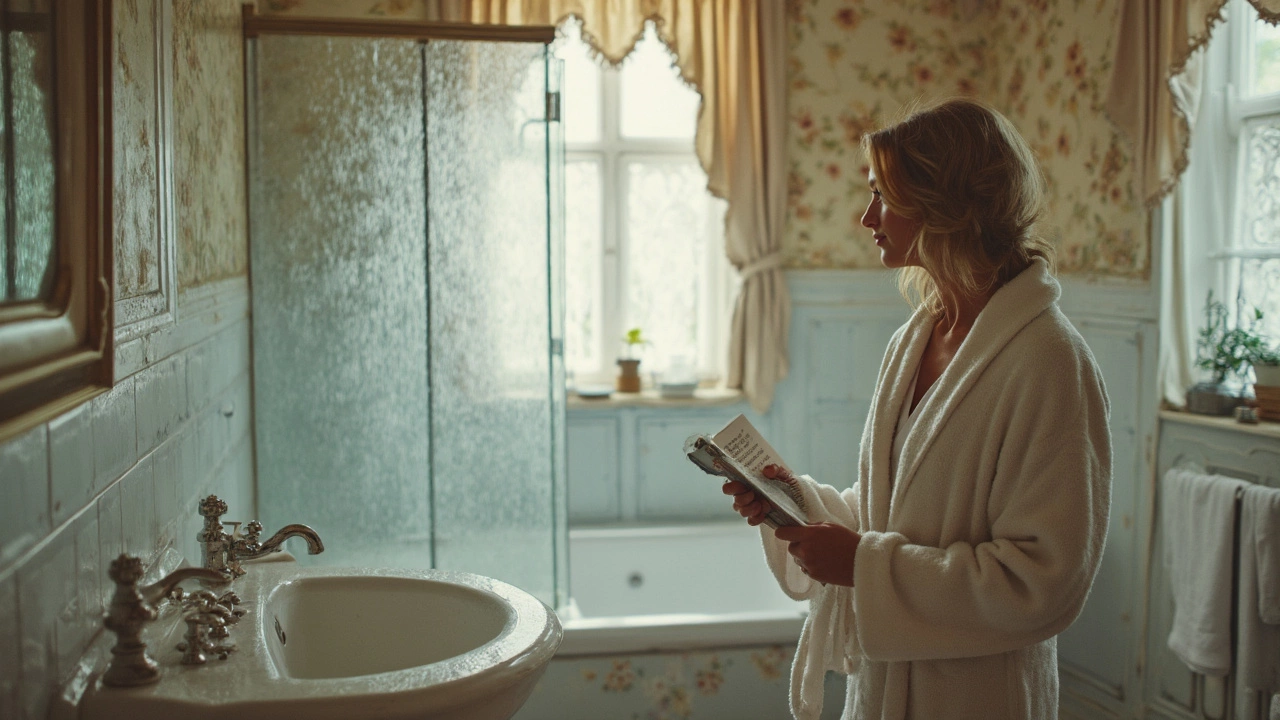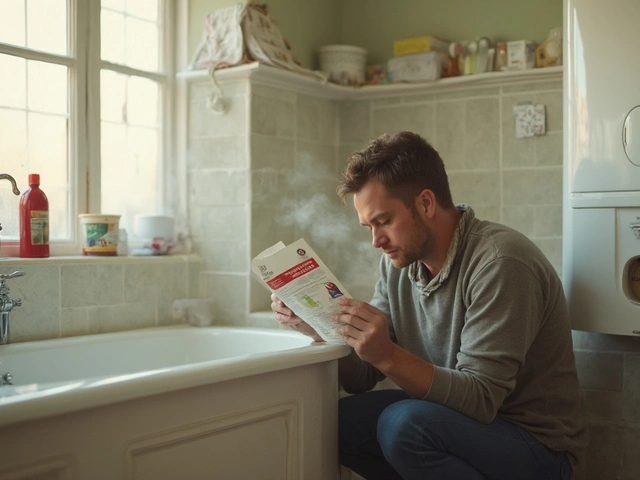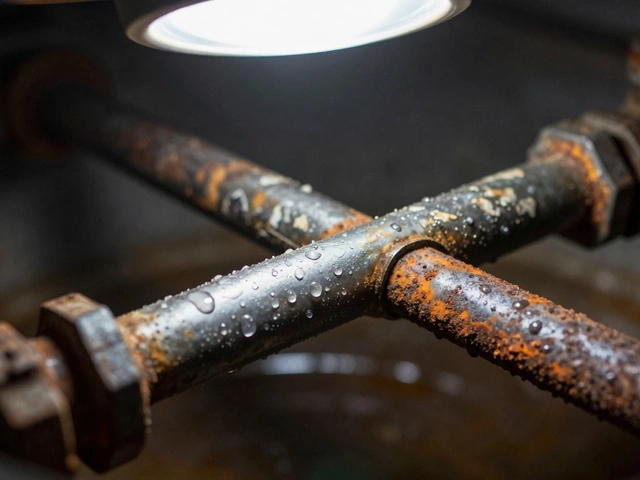Ever found yourself wondering why your sink's hot water is working just fine, but your shower is giving you the cold shoulder? Trust me, you're not alone. This situation is a head-scratcher, but don't sweat it. We'll get to the bottom of it.
The first thing to consider is the possibility of a shower valve issue. Sometimes these valves, which mix hot and cold water, stop working properly. If that's the case, adjusting or replacing it could be the key to getting things back to normal. Sounds simple, right?
Or maybe it's not the valve. It could actually be something as small as a clogged showerhead. Mineral deposits love to sneak up on us, blocking the water flow without any warning. Try removing the showerhead and giving it a good clean. That might just do the trick.
Of course, if these simple fixes don't solve the problem, the issue might be with your water heater. Is it heating properly? Is it providing enough hot water? A quick check on the thermostat and the pressure relief valve can offer some clues. With a bit of attention, you could save a bundle on repair costs.
- Common Causes of Shower Hot Water Issues
- Step-by-Step Troubleshooting Guide
- Maintaining Your Water Heater and Pipes
- When to Call a Professional
- Prevention Tips for Future Plumbing Problems
Common Causes of Shower Hot Water Issues
If you've noticed that hot water isn't making its way to your shower, you're definitely not alone. Let's break down some common culprits that could be behind this headache.
1. Faulty Shower Valve
Your shower valve might be on the fritz. It's responsible for mixing hot and cold water, and if it starts acting up, that mix could be more cold than hot. This is often due to wear and tear over time. Replacing the valve might seem daunting, but it's a pretty straightforward fix for DIY enthusiasts.
2. Clogged Showerhead
Believe it or not, a clogged showerhead can be a major reason for a weak hot water flow. Mineral deposits from hard water are sneaky little things that can build up surprisingly fast, blocking the water flow. Unscrewing the showerhead and giving it a thorough clean can often resolve the issue.
3. Water Heater Issues
Your water heater might be the real culprit here. It could be that the heater isn’t providing enough heat or the size isn't sufficient for your house's needs. Check the thermostat settings first. It's also possible that sediment has built up in the heater, which reduces its efficiency. Regular flushing of the tank can prevent this problem.
4. Pipe Problems
Sometimes, the problem is hiding in your pipes. Insufficient pipe insulation or blockages in the plumbing can impact water delivery. If you're noticing other water pressure issues around the house, it's worth looking into. Insulating pipes and ensuring there's no blockage can do wonders.
Potential DIY Fixes
- Test the shower valve by adjusting the mixing setting and see if anything changes.
- Remove and clean the showerhead to remove mineral buildup.
- Check the water heater's thermostat and consider adjusting it slightly.
- Inspect your pipes for visible signs of wear or damage.
Step-by-Step Troubleshooting Guide
If you're scratching your head over hot water issues in the shower, this guide is for you. Tackling plumbing problems can be easier than you think, and with this step-by-step process, you'll soon be on your way to a nice hot shower.
1. Check the Shower Valve
Your first stop is the shower valve. Shut off the water supply and take a peek inside. If the valve is misaligned or worn out, you'll need to adjust or replace it. It’s a common culprit when the shower doesn’t get hot, but everything else does.
2. Inspect the Showerhead
Next, let's look at the showerhead. Mineral deposits can gunk up the works, reducing hot water flow. Unscrew the showerhead and inspect for blockages. A soak in vinegar might be all it takes to clear it out.
3. Evaluate the Water Heater
Your water heater is up for its check-up. Confirm the temperature settings; a safe bet is around 120 degrees Fahrenheit. Ensure it’s functioning efficiently by checking for any leaks or strange noises. If it’s been a while since maintenance, you might consider a professional inspection.
4. Examine the Pipes
Pipes could be to blame for the cold water conspiracy. Feel for drastically cold areas along the pipes, as freezing can cause issues. Insulate if needed or check for leaks that might be affecting the water temperature.
Bonus Tip: Water Pressure
Don’t forget about water pressure! Low pressure in the shower might hinder your attempts to get a consistent hot stream while the sink works just fine. Try adjusting the pressure settings or check the main valve to see if it’s fully open.
Follow these steps, and you might just solve the mystery of your hot water dilemma. Conquer these simple pointers before you shell out money for professional help.
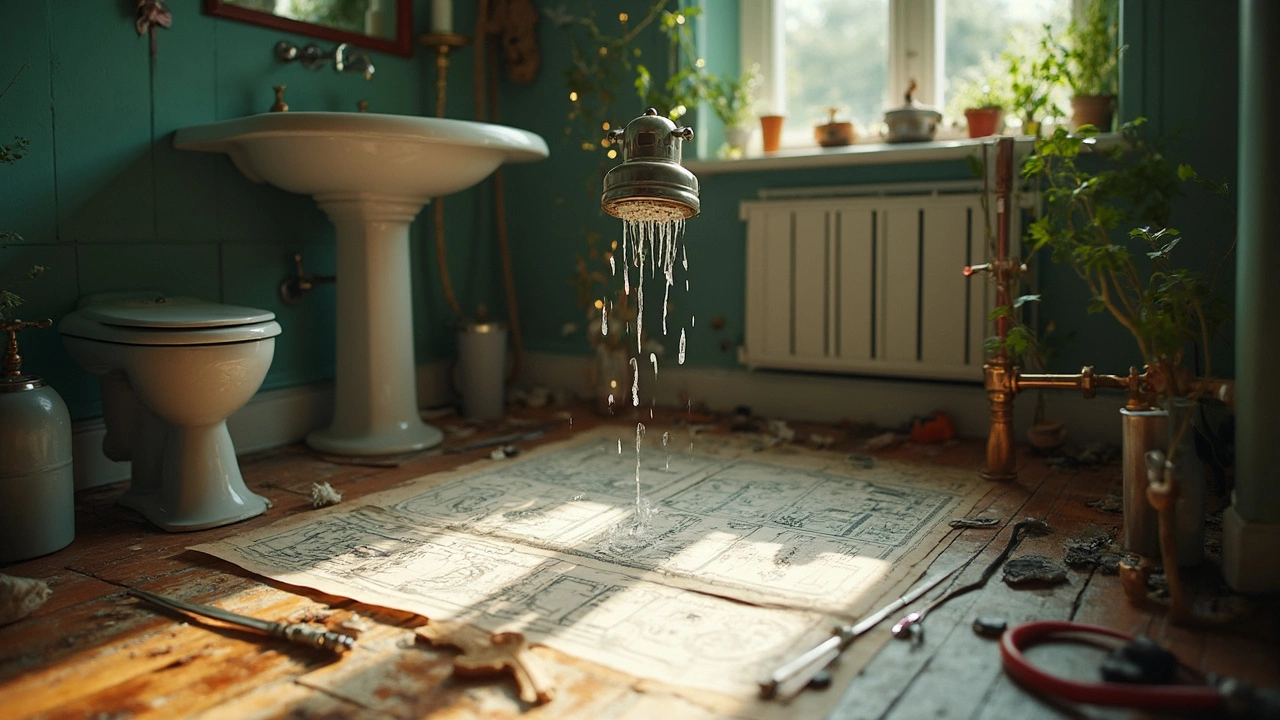
Maintaining Your Water Heater and Pipes
Keeping your water heater and pipes in top shape isn't just about convenience—it's about extending their lifespan and saving yourself some serious cash. Let's break this down.
Regular Maintenance
A good place to start is by doing regular check-ups on your water heater. Once or twice a year, you should drain your water heater tank. Sediment buildup can cause all sorts of problems over time.
- Turn off the power or gas to the water heater.
- Connect a hose to the drain valve and direct it outside or to a floor drain.
- Open the valve and let the tank fully empty, then flush it with fresh water.
After you’ve drained the tank, be sure to check the pressure relief valve. This important safety device releases excess pressure and must function properly. Just lift the valve lever slightly and let the hot water release. If it doesn't, it's time to replace it.
Insulate to Save
Insulating both your pipes and the water heater can save energy and improve efficiency—particularly if it's located in an unheated space. You can grab some cheap foam pipe insulation at any hardware store. Just wrap it around the pipes and you're set!
Check Those Signs of Trouble
Listen for strange noises, like popping or knocking, from the water heater. Those are signs that sediment is building up, and that it's time for another flush.
Check visible pipes for leaks or corrosion. Spotting minor issues early can prevent major headaches down the line.
| Maintenance Task | Recommended Frequency |
|---|---|
| Water Heater Flush | 1-2 times per year |
| Pressure Relief Valve Check | Annually |
| Pipe Insulation Check | Annually |
Taking these steps might sound like a chore, but trust me, a little effort now can save you from a whopping repair bill later. Happy plumbing!
When to Call a Professional
Sometimes, despite all your efforts, your plumbing woes might still leave you stumped. Knowing when to call a professional can save your sanity and your wallet. Here's when you should consider dialing up an expert.
Persistent Water Pressure Problems
If you're constantly facing low water pressure no matter what you've tried, it might be more than just a clogged showerhead. It's time to let a plumber take a closer look—they have the tools and expertise to diagnose deeper issues that might involve your entire plumbing system.
Recurring Hot Water Issues
Is the hot water mishap a frequent flyer in your home? It could point to a more serious underlying problem with the water heater. A professional can determine if there’s a hardware failure, sediment build-up, or an issue with your unit's heating elements.
| Common Problems | Professional Solutions |
|---|---|
| Faulty Valves | Replacement or Repair |
| Leaky Pipes | Pipe Repairs or Sealing |
| Complex Water Heater Issues | Diagnostic and Repair Services |
Leaky Pipes or Water Damage
If you spot any leaks or signs of water damage, don't play detective for too long. Leave this to the pros before it escalates into mold growth or structural damage. They have the experience to fix and minimize the risk of future leaks.
Under-Performing Water Heater
Your water heater might not be keeping up with demand. A technician can assess whether repairs are in order or if a more energy-efficient upgrade is worth considering. It’s particularly wise if the unit's older than 10 years.
In the end, calling on a professional shouldn’t be seen as a defeat. It’s a smart decision to ensure your home runs smoothly and that small issues don’t become major headaches. Better safe than sorry, right?
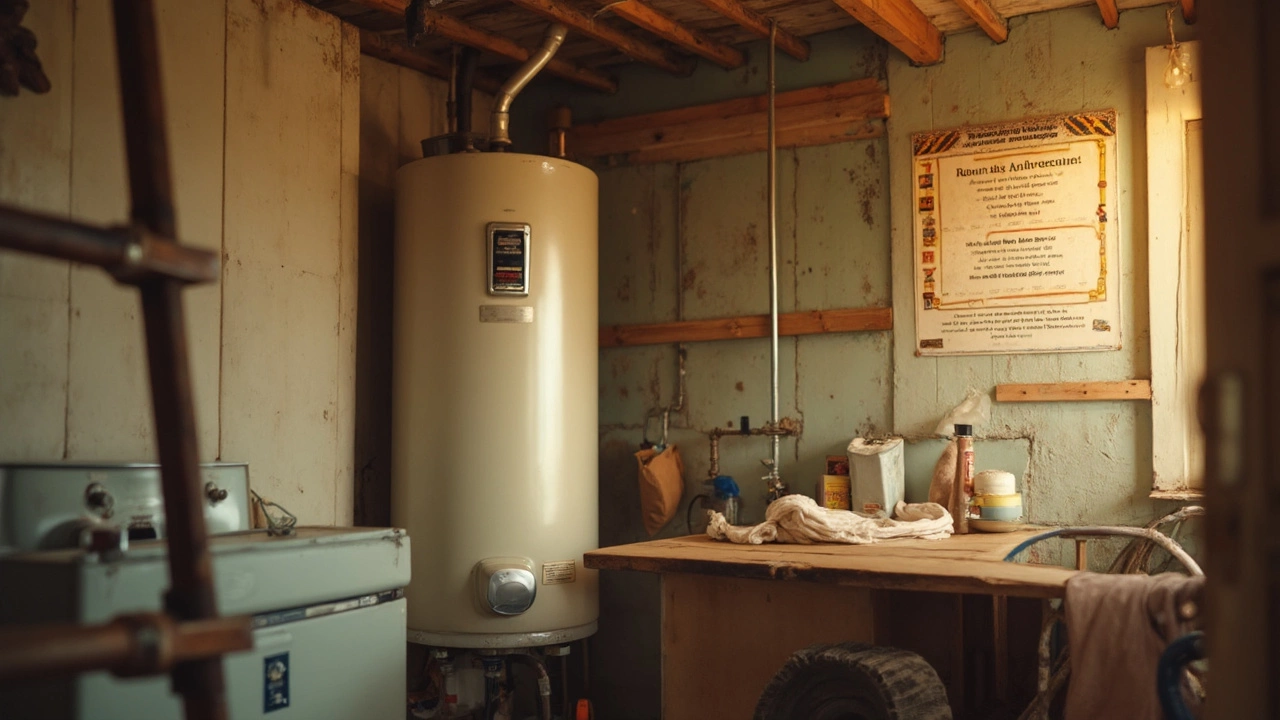
Prevention Tips for Future Plumbing Problems
Keeping your hot water running smoothly in both your shower and sink doesn't have to be a headache. A few simple maintenance steps can keep plumbing troubles at bay.
Regular Maintenance Checks
Start by conducting regular checks on your water heater. Make sure it's heating water consistently. If something seems off, like discolored water or odd noises, it's better to address it early. Flush the tank annually to remove sediment build-up, maintaining the efficiency of your heater.
Monitor Water Pressure
High water pressure can harm your plumbing system. Install a pressure regulator if you notice that the pressure is too high, as it could save you from leaks and pipe bursts down the line.
Mind the Valves and Pipes
Don't overlook the condition of your shower and sink valves. Checking them regularly for signs of wear can prevent uneven temperatures or no hot water situations. Also, inspect your pipes for corrosion, especially if you live in an area with hard water. Addressing corrosion early can save you from future plumbing messes.
Keep an Eye on Your Fixtures
Fixtures, especially showerheads, can sneakily build up mineral deposits. Clean them periodically to avoid clogs that can restrict water flow. A simple soak in a vinegar solution usually does the trick, leaving them clean and good as new.
Smart Installation Practices
If you're renovating or adding plumbing, always go for quality materials and professional installation. It may cost more upfront but saves trouble in the long run.
Stay Informed of Changes
Being aware of local water quality reports can inform you of potential mineral build-up or corrosive risks, helping you take proactive steps.
Stick to these tips, and you'll likely avoid calling the plumber for more serious repairs. Peace of mind? Priceless!

